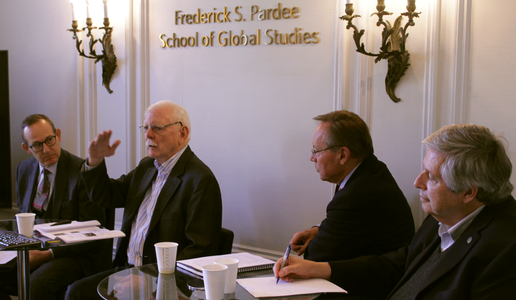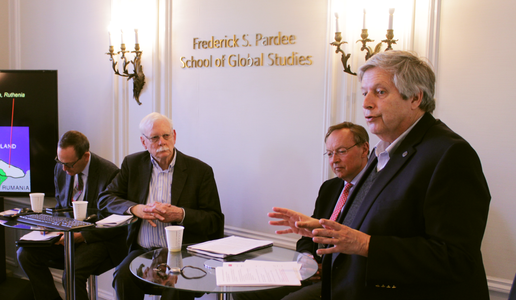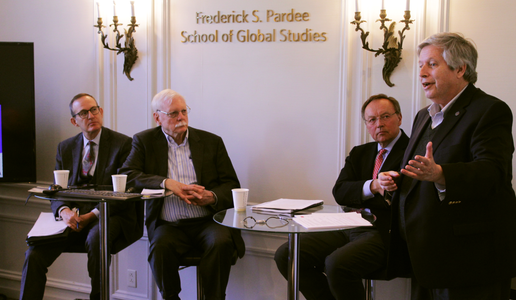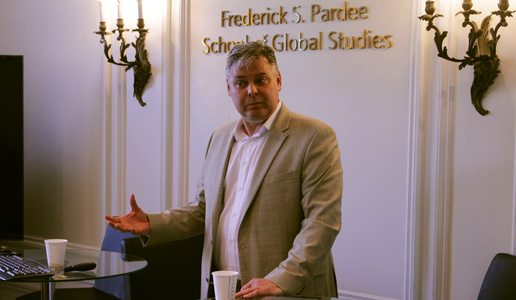Pardee School Hosts Symposium on 1919 Paris Peace Conference
The Frederick S. Pardee School of Global Studies at Boston University held an afternoon of panels and lectures on the 100th anniversary of the 1919 Paris Peace Conference on May 8, 2019 at 121 Bay State Road.
Erik Goldstein, Pardee School Professor of International Relations and History, and William Keylor, Pardee School Professor Emeritus of International Relations and History, co-organized the event, entitled “The Paris Peace Conference of 1919 and the End of the Great War,” and gave introductory remarks.
The first panel of the afternoon, on “The End of the War,” was chaired by Joseph Wippl, Pardee School Professor of the Practice of International Relations. Cathal Nolan, Executive Director of the International History Institute at Boston University, spoke on “Winning the War, Before Losing the Peace”; John Maurer, Alfred Thayer Mahan Distinguished Professor of Sea Power and Grand Strategy at the Naval War College, spoke on “The Naval Battle of Paris: America, Britain, and Sea Power at War’s End”; and Michael McGuire, Lecturer at the Pardee School, spoke on “Foreign Relief or Foreign Relations: Humanitarian War Aid During the Paris Peace Conference.”
The second panel of the afternoon, on “The Settlement Envisaged,” was chaired by John D. Woodward, Jr., Pardee School Professor of the Practice of International Relations. Keylor spoke on “Wilsonian Internationalism and the Test of Time”; Igor Lukes, Pardee School Professor of International Relations and History, spoke on “Frantisek Palacky, Thomas Masaryk: Contending Visions of Central Europe?”; and Goldstein spoke on “Britain’s Plans for a New Middle Eastern Empire.”
Peter Jackson, Professor of Global Security at the University of Glasgow, delivered the keynote discussion on “Contending Conceptions of International
Organization.”
Following the panels and keynote discussion a reception was held at 121 Bay State Road. The event was co-sponsored by the Pardee School, the BU International History Institute, and the Military Historical Society of Massachusetts,









